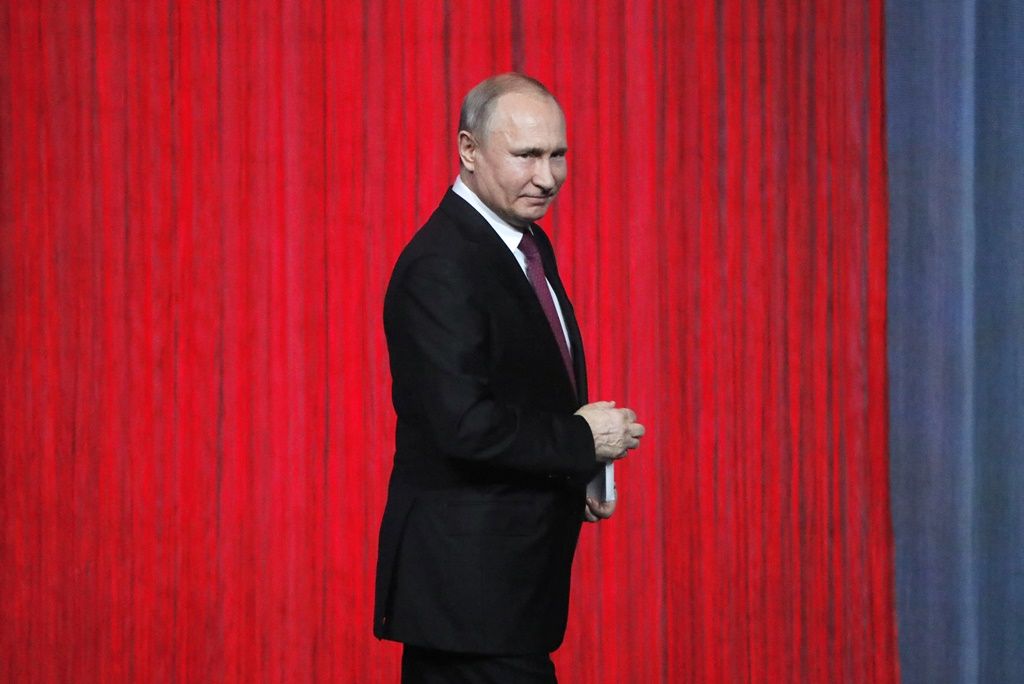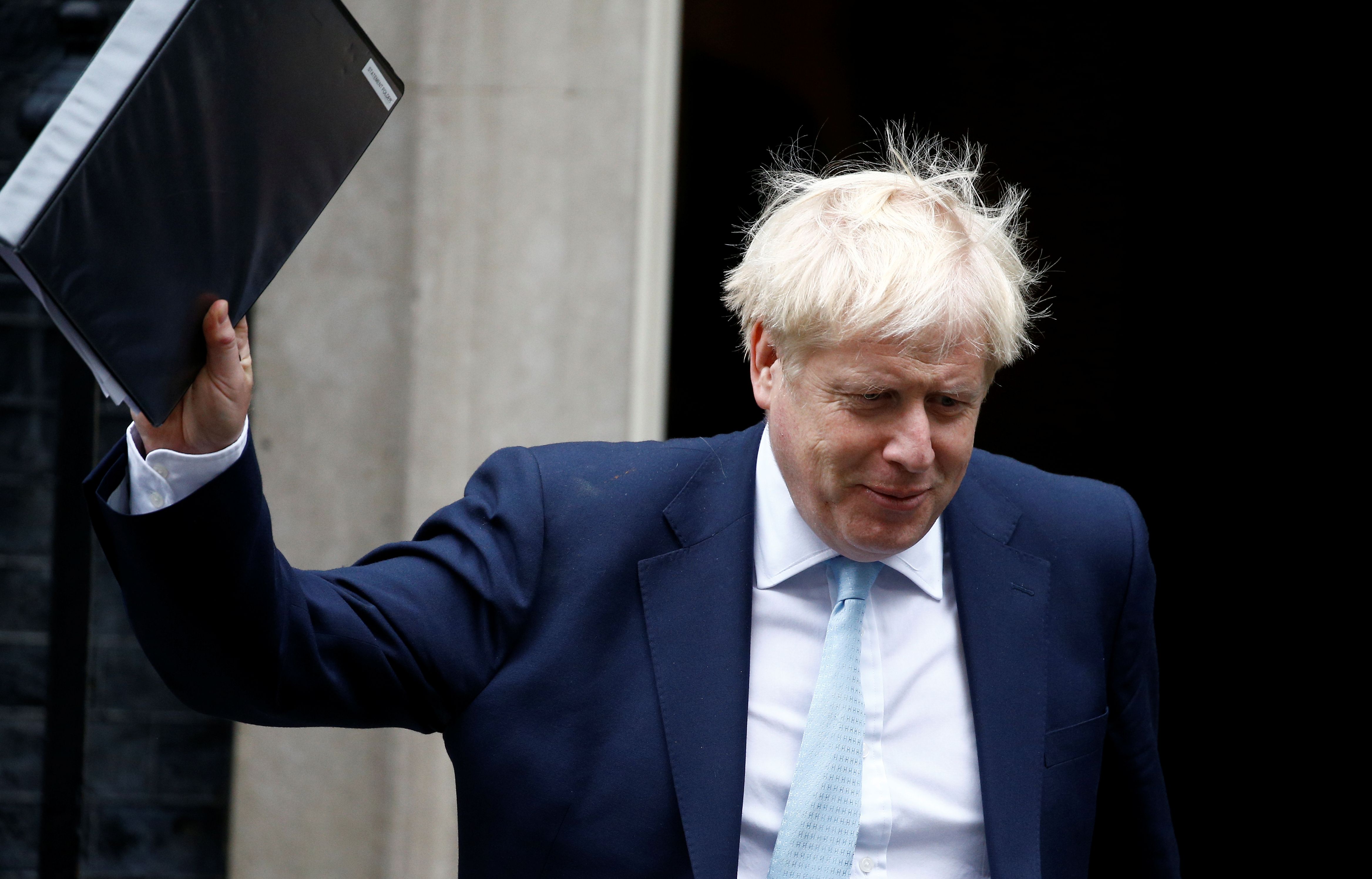The Importance of Brexit for Russia

Russia is suspected of supporting Brexit. The UK Electoral Commission referred evidence to the National Crime Agency because Arron Banks, the biggest donor of the Leave.eu campaign, could not indicate funding sources. According to the media, he has received lucrative contracts for the extraction of Russian gold. Between 2015 and 2017, people associated with Leave.eu contacted the Russian ambassador in London and other high-ranking Russian officials.
Political Importance
Brexit is seen in Russia as an opportunity to weaken the European Union. According to the Russian authorities, ongoing negotiations between Britain and the EU, this week extended until October 31, limit the EU’s ability to pursue an active external policy, including one towards the Russian Federation. In Moscow’s opinion, Brexit will trigger further crises within the EU and hinder its functioning. Furthermore, the UK identifies the Russian threat as among the most serious to European security. Since the beginning of Russian aggression in Ukraine in 2014, the British authorities have been in favour of tightening the EU’s Russia policy. The British government also supports the imposition of further sanctions on Russia and is a proponent of strengthening NATO’s Eastern Flank. The UK is the leading country in the multinational battalion group stationed in Estonia. According to public opinion polls, up to 60% of Britons perceive Russia as a threat, and 49% want to see stricter EU sanctions. Thus, Brexit will mean the EU losing a Member State whose actions, from Russia’s perspective, are a serious threat to its strategic interests. Moscow hopes that the UK’s departure will weaken the group of countries supporting an uncompromising EU policy towards Russia, which could, in the long term, lead to the abolition of sanctions imposed by the EU on the Russian energy and defence industries.
Economic Significance
The Russian authorities seek to reduce the outflow of capital in the hands of its richest citizens who want to hide their property outside the country. Over the past 25 years, nearly $750 billion has been transferred to foreign bank accounts. A significant portion of this (though difficult to estimate) was sent to the United Kingdom, and especially to the British Overseas Territories (such as the Virgin Islands). The UK was the first country in the EU to introduce “golden visas” (currently available for £2 million), which allowed foreign nationals the right to reside permanently in Britain, to buy real estate there, and to obtain work and education in the UK. This created an environment for investment by wealthy Russians, who used the British banking system and companies registered in British tax havens to reinvest money in the Russian Federation while avoiding paying taxes there, at great expense to the Russian budget.
The Russian authorities are convinced that Brexit and new regulations on foreign investment in the UK will persuade oligarchs to transfer their funds back to Russia. Since 29 March, new investors have been obliged to prove the origin of their funds going back two years, and money has to be spent on investments in business, not government bonds. Rich Russians have also had problems extending their stay in the UK. For example, Roman Abramovich, the owner of Chelsea Football Club, tried unsuccessfully to renew his residency (although the Israeli citizenship he received in May 2018 granted him the right to remain in the UK).
However, Russian businessmen will probably move to tax havens in the British Overseas Territories instead of returning to the Russian Federation. In 2018, the value of investments made in Russia by companies with Russian capital but registered in the British Virgin Islands increased threefold compared to 2017. A report issued in May 2018 by the House of Commons Foreign Affairs Committee, regarding corrupt activities of Russians in the UK, points out that counteracting the Russian presence in non-transparent banking systems operating in the British Overseas Territories will be a challenge for London.
Potential Financial Consequences for Russia
Although the Russian Federation perceives Brexit as beneficial for its interests, the UK’s departure from the EU may have negative financial consequences for the Kremlin. Russian money, both state and private used the City of London as a route to EU investment markets. This is likely to change, with a new focus on Dublin, Paris or Frankfurt. The post-Brexit future of 15 Russian companies active on the London Stock Exchange will depend on other investors and market stability. Since 2018, the UK authorities have hindered the activity of Russian companies on the LSE. In April, for example, the railway company Rustranscom applied to sell shares in London, but this may be rejected (as was the case with Sibur petrochemical). According to the International Monetary Fund, a no-deal Brexit may bring a few years of recession to the UK. This could damage Russian businesses in Britain, as well as the value of their shares on the LSE.
Conclusions and Prospects
The British authorities have not yet proved Russian involvement to the Brexit referendum. However, many things suggest that Moscow supported the Brexiters.
When the United Kingdom leaves the EU, Russia will be in a stronger position because Britain is a major player among the Member States convinced of the threat posed by Moscow. At the same time, the new division of votes in the European Union Council will give Germany greater influence on the formulation of the EU’s external policy. Berlin is open to dialogue with Moscow and promotes the concept of a New Eastern European Policy. The Russian authorities will try to deepen bilateral economic cooperation, especially with Germany, Italy and Austria. One instrument of this will be the Nord Stream 2 gas pipeline.
The exit of the United Kingdom from the EU may encourage some Member States to intensify attempts to withdraw sanctions against Russia. Although there is no immediate prospect of such an outcome Polish diplomats may nevertheless seek the extension of sectoral sanction validity (currently reviewed every six months) by making any such decision conditional upon the restoration of full territorial integrity for Ukraine.
As a result of Brexit, Poland will lose an important ally in EU external policy. Therefore, it is in Warsaw’s interests that EU security policy is shaped in cooperation with NATO, of which the UK will remain an active member. Poland and the UK should also step up cooperation in sharing cybersecurity and information warfare best practices. Intelligence cooperation would be beneficial for both parties when British forces are redeployed from Germany to Polish territory. Indeed, the December 2017 Treaty on Defence and Security Cooperation has already laid the foundations for greater bilateral engagement between London and Warsaw, based on a shared view of the Russian threat.
Contrary to the expectations of the Russian authorities, it is unlikely that either oligarchs or money will return to the Russian Federation after Brexit. The number of wealthy Russians resident in the UK has decreased, but some now use the passports of other countries (such as Cyprus or Malta) to enable them to live and work outside Russia. This strategy is supported by the non-transparent banking system, especially in British tax havens, which does not take into account losses to the Russian budget. However, it could be expected that these oligarchs will make more illegal transactions outside the EU in order to hide their wealth. In this respect, Poland may press the EU and the UN Security Council for greater transparency of banking systems and more effective measures to counteract money laundering.



